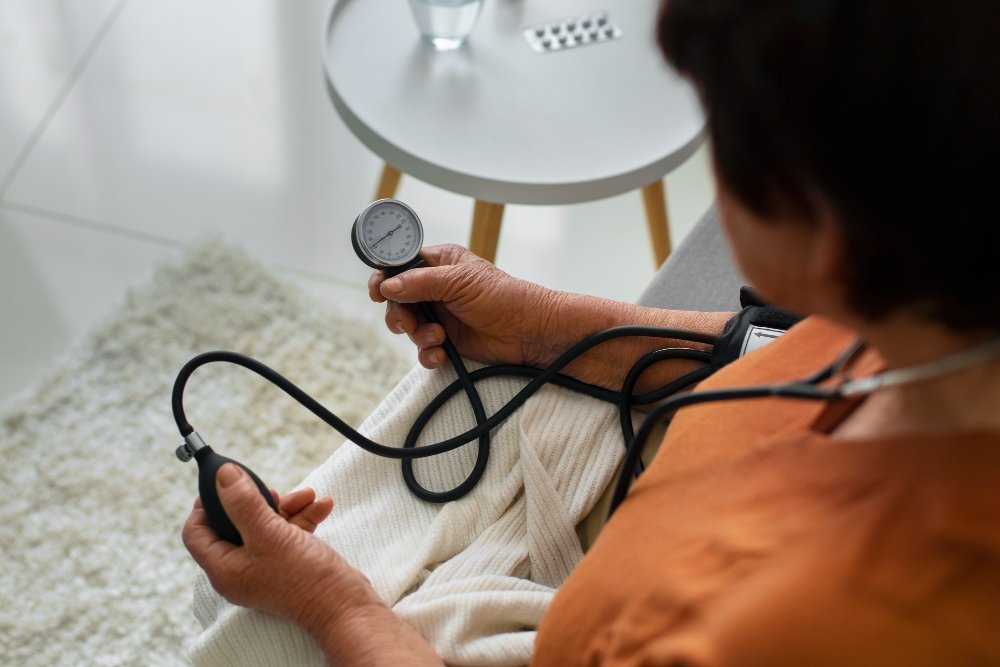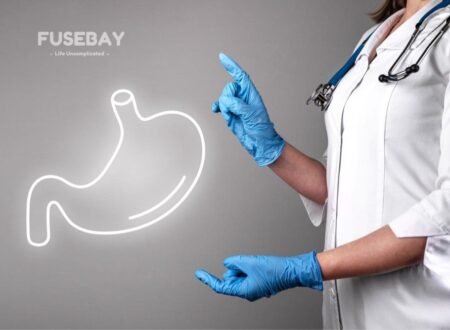How to Keep Kidneys Healthy
The kidneys are among the most vital organs in the human body, playing a crucial role in filtering waste, balancing body fluids, and regulating blood pressure. Without properly functioning kidneys, the body cannot eliminate toxins, which can lead to severe health complications, including kidney disease and kidney failure. Learning how to keep kidneys healthy is essential for overall well-being. This guide explores practical steps to maintain kidney health, including dietary choices, lifestyle habits, and preventive care. By following these recommendations, you can significantly reduce the risk of kidney-related issues and ensure a healthier life.
Importance of Kidney Health
The kidneys perform several essential functions that keep the body in balance. These include:
- Filtering Waste: The kidneys remove excess toxins and waste products from the blood and excrete them through urine.
- Regulating Blood Pressure: They control blood pressure by managing fluid levels and releasing hormones that constrict or relax blood vessels.
- Balancing Electrolytes: Sodium, potassium, and phosphorus levels must be maintained within a specific range for the body to function correctly.
- Producing Red Blood Cells: The kidneys release erythropoietin, a hormone that signals the bone marrow to produce red blood cells.
- Strengthening Bone Health: The kidneys help activate vitamin D, which supports calcium absorption for strong bones.
If the kidneys become damaged or weakened, these functions become impaired, leading to fluid retention, high blood pressure, and toxic buildup. Maintaining kidney health is essential for a long, healthy life.

1. Maintain Proper Hydration
1.1 Why Water is Essential for Kidney Health
Water is the primary medium through which kidneys filter and eliminate waste. When hydration levels drop, waste products accumulate, increasing the risk of kidney stones and infections. Adequate water intake helps prevent urinary tract infections (UTIs) and promotes overall kidney function.
1.2 How Much Water is Enough?
The recommended daily water intake varies based on age, climate, and activity level. However, a general guideline is:
- Men: Around 3.7 liters (125 ounces) each day
- Women: Around 2.7 liters (91 ounces) each day
- People with kidney disease: Should follow a doctor’s recommendations, as excessive water can sometimes be harmful.
1.3 Signs of Dehydration
Dehydration can strain the kidneys and lead to the formation of kidney stones. Common signs include:
- Dark yellow urine
- Dry mouth and skin
- Fatigue and dizziness
- Reduced urination
To maintain kidney health, drink water consistently throughout the day rather than consuming large amounts at once.

2. Follow a Kidney-Friendly Diet
2.1 Reduce Sodium Intake
Excess sodium can lead to high blood pressure, a major contributor to kidney disease. Processed foods, fast food, and salty snacks should be limited. Instead, opt for fresh fruits, vegetables, and homemade meals to control sodium intake.
2.2 Increase Antioxidant-Rich Foods
Antioxidants help reduce inflammation and oxidative stress on the kidneys. Recommended foods include:
- Blueberries and strawberries
- Apples and cherries
- Spinach and kale
2.3 Limit Protein Intake
Excessive protein, particularly from red meat, can strain kidney function. Healthier protein sources include:
- Fish (such as salmon and tuna)
- Eggs
- Plant-based proteins like lentils, quinoa, and tofu
Eating the right balance of nutrients helps prevent kidney strain and supports overall health.

3. Control Blood Sugar Levels
3.1 How Diabetes Affects Kidney Health
Uncontrolled diabetes damages kidney blood vessels, impairing their ability to filter waste properly. This condition, known as diabetic nephropathy, is a leading cause of chronic kidney disease (CKD).
3.2 Healthy Habits to Control Blood Sugar
- Eat a balanced diet: Avoid processed sugars and focus on whole grains, lean proteins, and fiber-rich foods.
- Monitor blood glucose levels: Regularly checking blood sugar helps prevent long-term kidney damage.
- Exercise regularly: Physical activity helps regulate insulin levels and maintain a healthy weight.

4. Manage Blood Pressure
4.1 The Connection Between Hypertension and Kidney Health
High blood pressure damages kidney arteries, making it harder for the kidneys to filter blood efficiently. After some time, this can prompt kidney disappointment.
4.2 Tips to Maintain Healthy Blood Pressure
- Reduce salt intake by avoiding processed foods.
- Exercise regularly to improve circulation and reduce hypertension.
- Practice pressure the executives procedures like contemplation or profound relaxing.
- Avoid smoking and limit alcohol consumption, as both raise blood pressure.

5. Exercise Regularly
5.1 Benefits of Physical Activity for Kidneys
Regular exercise helps maintain a healthy weight, improves heart health, and regulates blood pressure—all of which benefit kidney function. Experts recommend at least 150 minutes of moderate exercise per week, divided into 30-minute sessions five days a week.
5.2 Best Exercises for Kidney Health
- Walking: Low-influence and simple to integrate into day to day schedules.
- Swimming: Provides a full-body workout without joint strain.
- Cycling: Boosts cardiovascular health and improves blood circulation.

6. Avoid Overuse and Get Regular Check-Ups
6.1 Harmful Effects of Painkillers
Non-steroidal anti-inflammatory drugs (NSAIDs) like ibuprofen and naproxen can damage kidney tissues if used frequently.
6.2 Safe Alternatives
Consider natural pain relief methods such as:
- Turmeric and ginger for anti-inflammatory benefits
- Acupuncture or massage therapy for pain management
- Regular stretching and physical therapy
6.3 Who Should Get Tested?
- Individuals with diabetes or high blood pressure
- Individuals with a family background of kidney illness
- Those who experience frequent urinary issues or swelling

7. Quit Smoking and Limit Alcohol Consumption
7.1 How Smoking Affects Kidney Health
Smoking reduces blood flow to the kidneys, increasing the risk of kidney disease and kidney cancer. It also raises blood pressure, further damaging kidney function.
7.2 The Impact of Alcohol on the Kidneys
Excessive alcohol intake dehydrates the body and puts stress on the kidneys. To protect kidney health, follow moderation guidelines:
- Men: Something like two beverages each day
- Women: Something like one beverage each day
Early detection and lifestyle adjustments can prevent serious kidney complications.

Conclusion
Understanding how to keep kidneys healthy is essential for preventing kidney disease and maintaining overall well-being. Proper hydration, a balanced diet, regular exercise, and avoiding harmful substances are key to protecting kidney function. By managing blood pressure, controlling blood sugar levels, and undergoing routine medical check-ups, individuals can safeguard their kidney health and lead a healthier life. Taking proactive steps today ensures long-term kidney function and overall vitality.
Read More: How to Keep Liver and Kidney Healthy with Diet and Lifestyle?
Frequently Asked Questions on How to Keep Kidneys Healthy
1. What are the early signs of kidney disease?
Early signs include frequent urination, swelling in the legs or face, and persistent fatigue. Other symptoms may include foamy urine, loss of appetite, and difficulty concentrating. If these occur, consult a doctor for kidney function tests.
2. How can I prevent kidney stones?
Drink plenty of water, reduce salt and processed foods, and limit high-oxalate foods like spinach and nuts. Maintain a balanced diet with adequate calcium and magnesium. Avoid excessive animal protein and sugary drinks.
3. What foods should I avoid for better kidney health?
Limit high-sodium, high-potassium, and high-phosphorus foods like processed meats, sodas, and dairy. Reduce red meat, processed foods, and sugary beverages. A diet rich in fresh, whole foods supports kidney function.
4. Can exercise improve kidney function?
Yes, regular exercise helps lower blood pressure, regulate blood sugar, and maintain a healthy weight. Activities like walking, cycling, and yoga improve blood circulation. Exercise also reduces inflammation and supports overall kidney health.
5. How often should I get my kidneys checked?
High-risk individuals should have annual kidney function tests, especially those with diabetes or high blood pressure. People over 60 should get tested every two years. If symptoms like swelling or fatigue occur, consult a doctor immediately.







